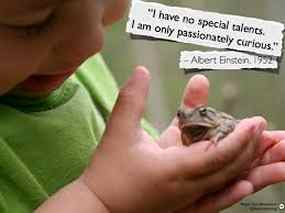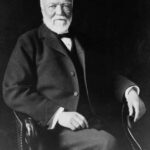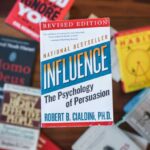Most business articles neglect to discuss one fundamental attribute that is a critical part of a successful small business owner’s personality. This dimension of their personality is so important that some say it is the linchpin to business success. Yet, rarely do you see it discussed in any business books. So, what is this attribute?
It is curiosity.
Curiosity, as a personal attribute, is often overlooked because it is not tied to any specific reward. George Loewenstein, Professor of Economics and Psychology at Carnegie Mellon University, once wrote:
“It makes sense for organisms to seek food, water, sex, shelter, rest, wealth, or any of the other myriad nourishing and pleasant things in life. But what is the good of deducing the nature of gravity, or of going to the moon?”
We all know that there are many facets to owning and operating a business. There is no single source or course that a new entrepreneur can take to learn everything they need to know to operate a small business in their chosen industry. Moreover, a new tool or way of doing business is introduced into the world every day that disrupts the status quo. Without a deep-seated love of ferreting out information in a quest for greater understanding, the business owner will never succeed at acquiring, and then maintaining, the knowledge necessary to remain relevant.
Babies are naturally curious creatures. They are born with an innate drive to explore the world around them. However, as soon as the child begins to use communications to learn more about the world, adults begin to quash the child’s curiosity. For example, think about when a small child asks an adult “why the sky is blue?” Most adults just don’t know the answer, and rather than use this opportunity to discover the answer together, they blow the child off. Over time the child learns not to question things and the flame of curiosity burns a little less brightly with each passing year.
Socrates suggested that the cause of a person’s curiosity is hubris. Even the Bible suggests that the quest for knowledge is bad. Consider this passage from the book of Genesis 2:15-17:
“The Lord God took the man and put him in the Garden of Eden to till it and keep it. And the Lord God commanded the man saying “You may freely eat of every tree of the garden; but of the tree of knowledge of good and evil, you shall not eat, for in that day that you eat it you shall die.”
In this passage, the lord represents the ultimate authority and the message is clear – don’t question authority or seek knowledge or suffer the consequences. We all know what happened next when Adam and Eve challenged authority and sought the fruit of the forbidden tree of knowledge of good and evil.
The current education system with their focus on Common Core and STEM-based instruction are preparing students to be able to deliver the “right answer.” Instead, we should be teaching students researching skills to prepare them to solve real-world problems, investigate and experiment with alternate solutions, and collaborate with others to communicate their acquired knowledge. By focusing on coming up with the one “right answer” rather than teaching critical thinking skills, we do so at the expense of fostering curiosity.
In business, there is rarely only one right answer. Professional success is often shaped by our experiences that we have gained through exploring alternate solutions to solutions to problems that don’t have an obvious answer. Therefore, curiosity is the ultimate drive of an entrepreneur’s success.
Do you have the curiosity gene necessary to make you a successful entrepreneur?












